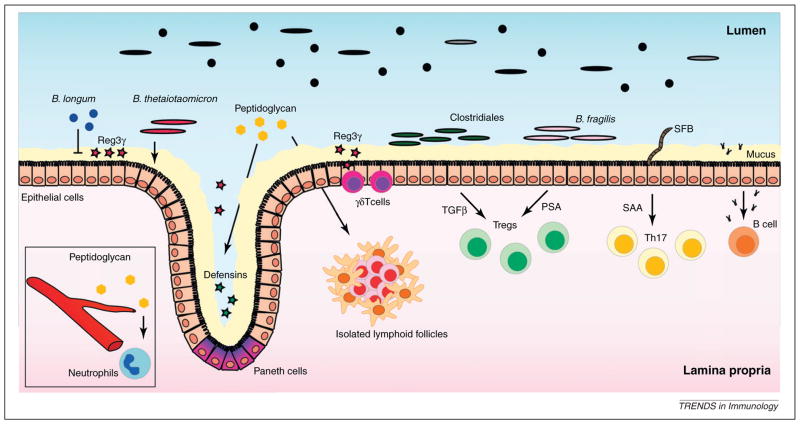Figure 1.
Microbiota effects on immunity. Products derived from commensal microbes stimulate the production of the antimicrobial peptide Reg3γ by intestinal epithelial cells (IECs), Paneth cells and γδ T cells. Different microbial species have different effects on Reg3γ expression. Although Bifidobacterium longum diminishes intestinal Reg3γ levels, Bacteroides thetaiotaomicron increases Reg3γ expression. Peptidoglycan induces expression of defensins by Paneth cells and upon translocation into the circulation primes neutrophils, enhancing their ability to kill pathogenic bacteria. In addition, peptidoglycan is essential for the development of isolated lymphoid follicles. Mucus production is also induced by the intestinal microbiota. Intestinal T regulatory cell differentiation is induced by polysaccharide A of Bacteroides fragilis and by induction of transforming growth factor β secretion by Clostridiales spp. Segmented filamentous bacteria associate with IECs and induces serum amyloid A expression, which, in conjunction with dendritic cells, induces differentiation of T helper 17 cells. Commensal microbes induce the production of highly specific IgA by B cells.

